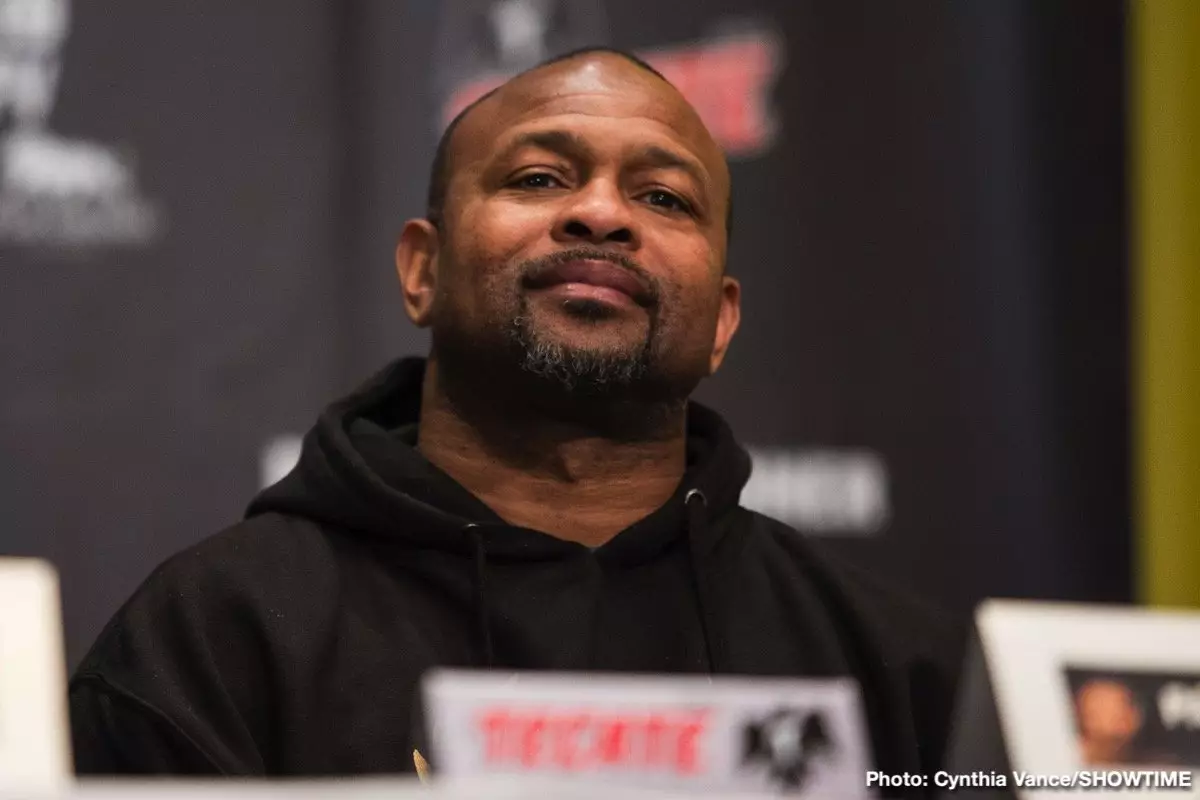In a recent episode of “All The Smoke,” an engaging boxing podcast hosted by the legendary Andre Ward, the conversation drifted toward the realm of mythical match-ups. This time, the esteemed Roy Jones Jr. joined Ward, resulting in a dynamic dialogue that spanned across their illustrious careers and encompassed some of boxing’s most intriguing hypothetical contests. The discussions held not just reverence for their own accomplishments, but also a respectful deference to their contemporaries, particularly focusing on the legendary Gerald McClellan.
Hurdles of Hypotheticals
The concept of “dream fights” allows fans and fighters alike to surface their deepest boxing aspirations and curiosities about how bouts that never transpired would unfold. Jones and Ward possess a remarkable history in the ring, both having achieved immense success, which makes their hypothetical discussions particularly captivating. Notably, when Ward queried Jones on the prospect of facing McClellan in a professional bout, it wasn’t simply a matter of playful banter. Instead, it opened an analytical review of each fighter’s strengths, weaknesses, and styles—an informal boxing lesson for both viewers and aspiring athletes alike.
In their exchange, Jones articulated his strategic approach he would have adopted against McClellan, particularly emphasizing how necessary it was to combat the formidable power of McClellan’s right hand. The essence of Jones’ analysis reflected a critical understanding of not just his opponent’s capabilities but also the significance of controlling the pace and rhythm of the fight.
Power and Strategy
Jones deftly pinpointed that McClellan’s reliance on his right hand was both a blessing and a potential pitfall. While McClellan was notorious for delivering powerful punches that could end fights in an instant, Jones recognized that if he could draw McClellan out of his comfort zone—forcing him to expend energy with less calculated strikes—he could manipulate the course of the bout. It’s intriguing to think about the fight strategy that separated them: Jones’s finesse and speed versus McClellan’s raw power and aggression.
While both are Hall of Famers and filled with accolades, the discussion illustrates a broader point regarding boxing artistry—a blend of calculated strategy and an instinctive response to the opponent’s strengths. Jones’s approach mirrored the technique demonstrated by other iconic fighters in history, suggesting that adaptability is just as vital as raw talent in determining outcomes in the ring.
A Brave Legacy Remembered
The conversation also reminded fans of the darker side of boxing, exemplified by McClellan’s tragic encounter with Nigel Benn in 1995. The severity of the injuries McClellan sustained serves as a reminder of the sport’s risks, pushing the dialogue beyond mere speculation into the realm of empathy and support. Jones’s continued connection to McClellan showcases the ethical responsibilities elite athletes carry, fostering a sense of community that transcends the competitive nature of their sport.
In reflecting on how today’s athletes can learn from past heroes, the interplay of strategy, respect, and understanding emerges. It emphasizes that boxing is much more than wins and losses; it’s about the bonds formed through shared experiences, the challenges faced, and the legacies left behind.
Imagining the Unimaginable
As tempting as it is to engage in “what ifs,” it’s equally essential to acknowledge that some legendary bouts were simply destined to remain in the realm of imagination. Jones correctly surmised that McClellan’s power was unparalleled, but boxing is a complex tapestry woven with diverse fighting styles, emotional stakes, and unforeseeable outcomes. One cannot help but wonder how a contest between two such formidable talents might have shifted not just their careers, but the broader narrative of boxing history.
The dialogue on “All The Smoke” is more than an exploration of hypothetical match-ups; it’s a celebration of craft, strategy, and the human experience tied to boxing’s storied past. Ward and Jones’s conversation encourages a recognition of not only the athletes who shaped the sport but also the profound impacts they have both directly and indirectly on each other’s lives. For diehard fans and newcomers alike, these reflections serve as rich food for thought, underpinning the excitement and complexity of the boxing world.


Leave a Reply